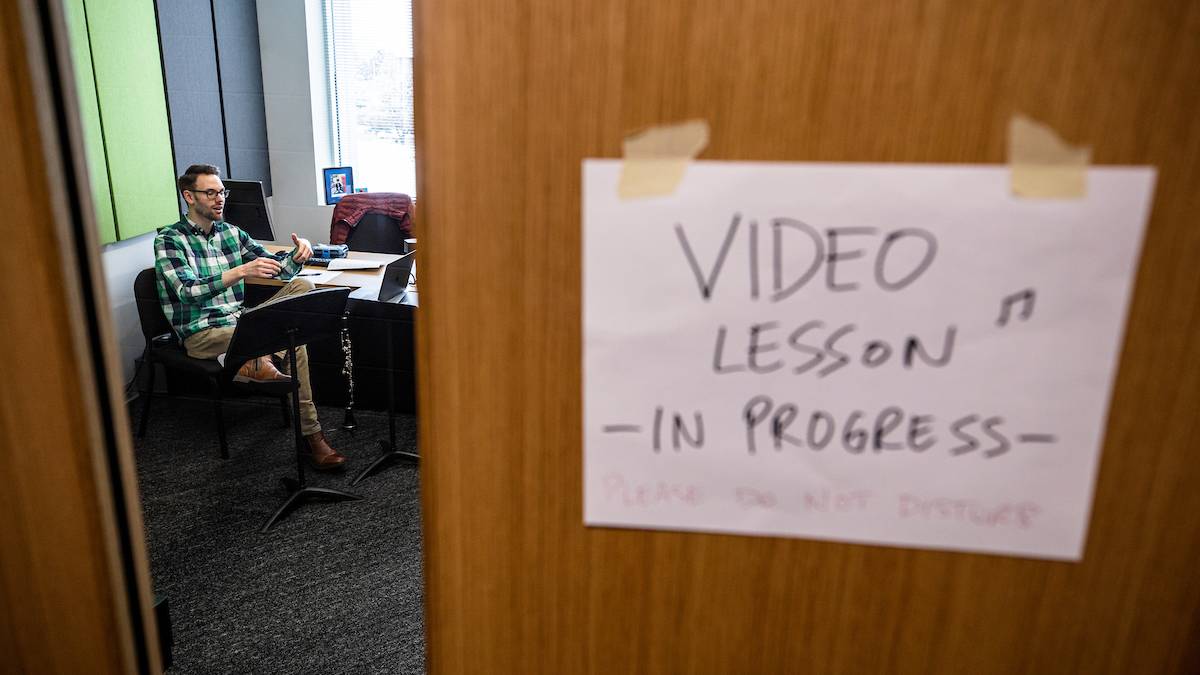
Everyone needs time to themselves. Self-care activities emphasize the importance of taking even just a few minutes to yourself to help alleviate stress and anxiety. But taking a few minutes every day (or even a whole day once in a while) for yourself is vastly different than the kind of social distancing we’re experiencing right now. Recommendations from state and federal leaders have resulted in long stretches of social isolation — up to 14 days for those in quarantine. Alone time can be a good thing — but how do two full weeks in isolation affect your mental health?
According to UVU Assistant Professor Angelea Panos, your mental health during prolonged isolation depends on a number of factors, including your mental health before the isolation began.
“Depending on your mental state prior to quarantine, it could put you at higher risk for deleterious effects,” Panos said. “A quarantine adds on top of the previous layer of distress you already had prior to the quarantine. The limbo of not knowing how long you might have to stay isolated increases the sense of uncertainty and helplessness.”
Elijah Nielson, Master of Social Work program coordinator, mentioned that social isolation can lead to feelings of sadness, anger, and depression. “People in general are social creatures,” he said. “One of the challenges with social distancing is that it can lead to social isolation. People that enjoy interacting with and being close to others now find themselves unable to physically be near other people — they can no longer attend their congregation, attend class, socialize at restaurants or bars, go to the gym, or even visit friends and loved ones.”
Panos also mentioned that it’s also important to examine any stress and anxiety coping skills you used prior to quarantine. “If you have effective coping skills that you’re able to utilize, you will adapt better,” she said. “However, if you survived by going to the gym daily and having lunch with your friends, you’ll need to develop new coping strategies for getting through this time of quarantine.”
The American Psychological Association reports that social isolation can lead to poor sleep, depression, lower immunity, and difficulty focusing or managing your emotions. And those are just the immediate effects. Social isolation can have long-lasting psychological impact. In fact, a study conducted on those in a voluntary quarantine during the SARS epidemic found that for over a month, 29% of participants displayed symptoms of post-traumatic stress disorder (PTSD) and 31% had symptoms of depression.
UVU Sociology Professor Ron Hammond has studied PTSD education and treatment in particular. He mentioned that for years, first responders have been trained in PTSD and PTG (post-traumatic growth). The growth portion, he notes, is particularly important.
“The wisdom is to plan for [post-traumatic stress], prepare for it, strategize how to grow from it, and get some help when needed along the way,” Hammond said. “PTG is about ‘benefit finding,’ or looking for the life lessons and growth, that we might only ever learn by going through our own very challenging and extended experiences.”
Nielson says that acknowledging your negative feelings is the first step to growth and healing. “Acknowledge that you feel [uncomfortable], normalize your feelings as being a natural response to an unusual situation, and find ways to address how you feel.”
Panos and Nielson both suggest making sure that you have positive social support (via phone, email, video chat, and other tools) and finding a balance that supports your needs during social isolation. “You can still see people, as long as you maintain appropriate distancing as recommended by the CDC,” Nielson said.
“What is missing from your schedule?” Panos asked. “Are you spending so much time watching the news that you’re feeling distraught? Is trying to get your kids to do their school work putting you over the edge? Set a healthy, daily routine for yourself and your house. Be kind to yourself and others. Finding balance might mean lowering your expectations a bit for now, and trying to do just a bit better each day. It takes time to adapt to a big change like quarantine. Be patient with yourself.”
Finding balance might mean lowering your expectations a bit for now, and trying to do just a bit better each day.
— UVU Assistant Professor Angelea Panos